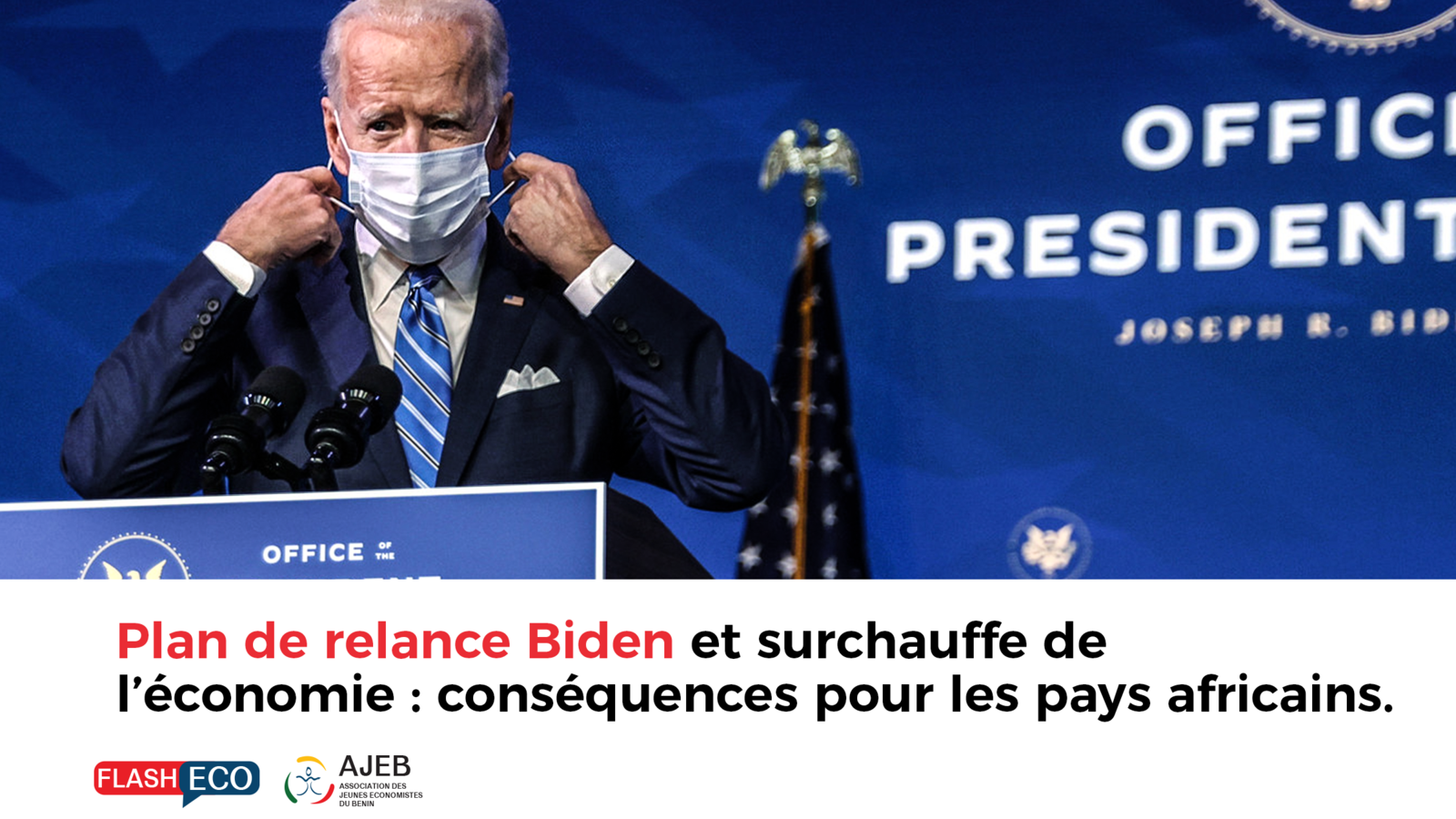
Public spending and inflation theoretically have a strong link. Given the level of taxes, an expansionary fiscal policy (increasing public spending in order to stimulate demand and de facto growth) can have perverse effects on the economy. The economy will end up well above its potential level (full employment), generating inflationary pressures.
The U.S. economic stimulus package estimated at US$1.9 trillion is raising concerns about a return of inflation. Economists Larry Summers and Olivier Blanchard consider this stimulus policy too ambitious and warn of a possible overheating of the economy.
From the first quarter of 2018 to the fourth quarter of 2019, economic activity in the United States was slightly above potential (observed GDP above potential) before experiencing a drastic and deep fall in the second quarter of 2020 (covid-19 effect). The Congressional Budget Office (CBO) projections anticipate a gradual return of economic activity to its potential level until the fourth quarter of 2023. But the economy will remain below potential in the absence of a new shock.
President Joe Biden's stimulus package would obstruct the CBO's projections and quickly push economic activity above potential. This positive shock could be accompanied by the return of high inflation. The U.S. Federal Reserve, in response to this situation, could then adopt a restrictive monetary policy by raising interest rates to slow the pace of economic activity.
What about the implications of an overheated U.S. economy on African economies?
The overheating of the U.S. economy could lead to imported inflation in several countries, including those in Africa. The high content of international trade in U.S. dollars makes it possible to understand the transmission mechanisms. American inflation will lead to an increase in the prices of goods imported (from) the United States. If, for a country, the consumption basket of the population is strongly dominated by goods imported from the United States, then there would be an increase in the general price level in that country. For countries with a fixed exchange rate regime, the inflation mechanism imported from the United States may result from the constraint on the central bank to maintain the fixed exchange rate. Indeed, U.S. inflation will be accompanied by a large amount of dollars in circulation (due to the vast stimulus package). Local central banks, in order to maintain the fixed parity, will buy back U.S. dollars, which will increase the supply of local currency. If economic activity does not follow this increase in the money supply, inflation will result.
Furthermore, if the U.S. Federal Reserve decides to pursue a restrictive monetary policy by raising interest rates (in order to control inflation in the United States), this will hamper the latitude of African countries in the international capital (debt) market to finance their economies.
In the short term, however, the overheating of the U.S. economy could benefit African economies by improving the competitiveness of goods produced in Africa relative to goods from the United States that will be more expensive. But the heavy dependence of African countries on imported goods, coupled with the predominantly raw material content of African exports, could quickly obstruct this positive effect.